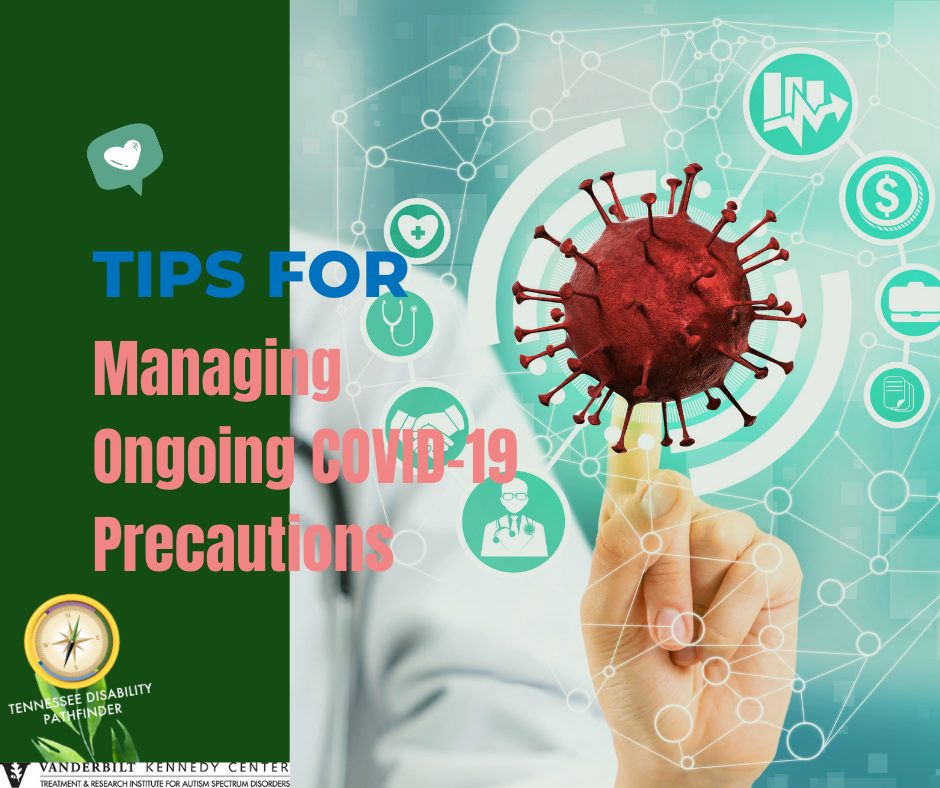
As COVID-19 cases increase again in Tennessee, many places are returning to or continuing with rules to keep people safe. These rules might include wearing face masks, staying six feet apart from other people, or limiting the number of people in indoor spaces. You and your family members may have many feelings about the ongoing pandemic and changing rules. Different people may feel stressed, exhausted, nervous, relieved, overwhelmed, or other ways. Changes and uncertainty may be especially stressful for autistic people. Below are some tips and resources to support you and your family members.
First, do your best to learn and follow safety guidelines. Remember that rules might be different in different places. Before you go somewhere, such as to school, a restaurant, or a doctor’s visit, look for information about the rules that place has to keep people safe. If there are optional guidelines, decide before you go which you will follow. You can also check the CDC website for up-to-date recommendations using this link: https://www.cdc.gov/coronavirus/2019-ncov/your-health/index.html. You can learn more about the COVID-19 vaccine at https://www.vaccines.gov/ and https://www.vumc.org/coronavirus/GetVaccines.
Second, it can be helpful to practice rules you will need to follow. For example, you or family members can practice skills like wearing a mask, using hand sanitizer, or standing six feet behind another person in a line. Practice skills for short amounts of time at first. Tools that can help with practice include social narratives, visual supports, or role plays. Social narratives explain what to expect in a situation, such as what to expect when you go to a doctor’s appointment. Visual supports are pictures or objects that remind people what to do or what will happen next. For example, a picture of a face mask can tell people when it is time to put on a mask. Some examples of social narratives and tips on practicing skills can be found online at this website: https://vkc.vumc.org/vkc/triad/covid19/
Finally, make time to talk, write, or think about what you are feeling. If you are worried, focus on things you can do to keep yourself safe. This can include wearing a mask, washing hands often, and social distancing, even if these things are not required. Remember to spend time doing safe activities that you enjoy, and find ways to safely connect with people you love. You can find more information on supporting autistic people here: https://afirm.fpg.unc.edu/supporting-individuals-autism-through-uncertain-times
The Treatment and Research Institute for Autism Spectrum Disorders (TRIAD) has more information available online. For other resources about autism and the COVID-19 pandemic, visit: https://vkc.vumc.org/vkc/triad/covid19/ For information about ways to support young children with autism spectrum disorder, visit: https://vkc.vumc.org/vkc/triad/fam/